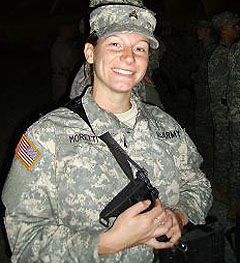
Spies, Lies, and Algorithms – The History and Future of American Intelligence by Amy Zegart.
Spying has never been more ubiquitous―or less understood. The world is drowning in spy movies, TV shows, and novels, but universities offer more courses on rock and roll than on the CIA and there are more congressional experts on powdered milk than espionage. This crisis in intelligence education is distorting public opinion, fueling conspiracy theories, and hurting intelligence policy. In Spies, Lies, and Algorithms, Amy Zegart separates fact from fiction as she offers an engaging and enlightening account of the past, present, and future of American espionage as it faces a revolution driven by digital technology.
Drawing on decades of research and hundreds of interviews with intelligence officials, Zegart provides a history of U.S. espionage, from George Washington’s Revolutionary War spies to today’s spy satellites; examines how fictional spies are influencing real officials; gives an overview of intelligence basics and life inside America’s intelligence agencies; explains the deadly cognitive biases that can mislead analysts; and explores the vexed issues of traitors, covert action, and congressional oversight. Most of all, Zegart describes how technology is empowering new enemies and opportunities, and creating powerful new players, such as private citizens who are successfully tracking nuclear threats using little more than Google Earth. And she shows why cyberspace is, in many ways, the ultimate cloak-and-dagger battleground, where nefarious actors employ deception, subterfuge, and advanced technology for theft, espionage, and information warfare.
A fascinating and revealing account of espionage for the digital age, Spies, Lies, and Algorithms is essential reading for anyone who wants to understand the reality of spying today.
The Assault on Intelligence: American National Security in an Age of Lies by Michael Hayden
Click here to read our full book review
American Intelligence–the ultimate truth teller–has a responsibility in a post-truth world beyond merely warning of external dangers, and in The Assault on Intelligence, General Michael Hayden, former CIA director, takes up that urgent work with profound passion, insight and authority.
It is a sobering vision. The American intelligence community is more at risk than commonly understood. Our democracy’s core structures are under great stress. Many of the premises on which we have based our understanding of governance are now challenged, eroded, or simply gone. And in the face of overwhelming evidence from the intelligence community that the Russians are, by all acceptable standards of cyber conflict, in a state of outright war against us, we have a President in office who chooses not to lead a strong response, but instead to shoot the messenger.
There are fundamental changes afoot in the world and in this country. The Assault on Intelligence shows us what they are, reveals how crippled we’ve become in our capacity to address them, and points toward a series of effective responses. Because when we lose our intelligence, literally and figuratively, democracy dies.
Jawbreaker – The Attack on Bin Laden and Al-Qaeda by Gary Berntsen
“Jawbreaker: The Attack on Bin Laden and Al-Qaeda” by Gary Berntsen is a gripping and no-holds-barred account of the early days of America’s covert war against al-Qaeda and the relentless pursuit of Osama bin Laden. Berntsen, a CIA officer at the forefront of this clandestine mission, offers readers a rare glimpse into the heart-pounding world of intelligence operations and counterterrorism.
The strength of this book lies in its firsthand perspective. Berntsen was a key player in the CIA’s efforts to track down bin Laden and disrupt al-Qaeda’s global network. His narrative unfolds like a thriller, replete with insider anecdotes and gritty details of fieldwork that make you feel like you’re right there alongside the agents on their perilous missions.
“Jawbreaker” is an exceptional and authentic account of the early days of the War on Terror. Gary Berntsen’s narrative is both a tribute to the bravery and dedication of the men and women involved in the mission and a stark reminder of the challenges and complexities of modern warfare. For those interested in the covert world of counterterrorism and the hunt for Osama bin Laden, this book is a must-read. It stands as a testament to the unyielding spirit of those who were determined to bring justice to the mastermind of 9/11.
Charlie Wilson’s War by George Crile
“Charlie Wilson’s War” by George Crile is a gripping and eye-opening account of a covert operation that had far-reaching consequences on the global stage. It tells the true story of how a charismatic and unconventional congressman, Charlie Wilson, played a pivotal role in arming Afghan mujahideen fighters in their battle against the Soviet Union during the Cold War.
Crile’s storytelling is engaging, and the narrative is peppered with anecdotes and firsthand accounts that bring the events and characters to life. The book’s pacing keeps readers engaged throughout, even when delving into the intricacies of political maneuvering.
“Charlie Wilson’s War” is an enthralling and thought-provoking account of a covert operation that had significant global repercussions. George Crile’s portrayal of Charlie Wilson’s larger-than-life personality and his role in the Afghan conflict is both captivating and revealing. While it primarily highlights the American side of the story, it serves as a captivating window into the world of covert operations, Cold War politics, and the unintended consequences of foreign policy decisions. It’s a must-read for history enthusiasts and those interested in the hidden world of international intrigue.
Spies – The Epic Intelligence War Between East and West by Calder Walton.
Spies is the history of the secret war that Russia and the West have been waging for a century. Espionage, sabotage, and subversion were the Kremlin’s means to equalize the imbalance of resources between the East and West before, during, and after the Cold War. There was nothing “unprecedented” about Russian meddling in the 2016 US presidential election. It was simply business as usual, new means used for old ends.
The Cold War started long before 1945. But the West fought back after World War II, mounting its own shadow war, using disinformation, vast intelligence networks, and new technologies against the Soviet Union. Spies is an inspiring, engrossing story of the best and worst of mankind: bravery and honor, treachery and betrayal. The narrative shifts across continents and decades, from the freezing streets of St. Petersburg in 1917 to the bloody beaches of Normandy; from coups in faraway lands to present-day Moscow where troll farms, synthetic bots, and weaponized cyber-attacks being launched on the woefully unprepared West. It is about the rise and fall of eastern superpowers: Russia’s past and present and the global ascendance of China.
Mining hitherto secret archives in multiple languages, Calder Walton shows that the Cold War started earlier than commonly assumed, that it continued even after the Soviet Union’s collapse in 1991, and that Britain and America’s clandestine struggle with the Soviet government provides key lessons for countering China today. This fresh reading of history, combined with practical takeaways for our current great power struggles, make Spies a unique and essential addition to the history of the Cold War and the unrolling conflict between the United States and China that will dominate the 21st century.
The Craft of Intelligence by Allen Dulles
“The Craft of Intelligence” by Allen W. Dulles, the former Director of the Central Intelligence Agency (CIA), is a timeless and thought-provoking exploration of the art and science of espionage. Originally published in 1963, this book remains relevant and informative for those interested in the world of intelligence and covert operations.
Dulles draws upon his extensive experience in intelligence and diplomacy to provide a comprehensive overview of the principles, challenges, and ethical considerations that define the world of espionage. His writing is clear, insightful, and accessible, making complex topics understandable to a wide readership.
In World War II his OSS agents penetrated the German Foreign Office, worked with the anti-Nazi underground resistance, and established contacts that brought about the Nazi military surrender in North Italy. Under his direction the CIA developed both a dedicated corps of specialists and a whole range of new intelligence devices, from the U-2 high-altitude photographic plane to minute electronic listening and transmitting equipment.
Intelligence in War by John Keegan
In fiction, the spy is a glamorous figure whose secrets make or break peace, but, historically, has intelligence really been a vital step to military victories? In this breakthrough study, the preeminent war historian John Keegan goes to the heart of a series of important conflicts to develop a powerful argument about military intelligence.
In his characteristically wry and perceptive prose, Keegan offers us nothing short of a new history of war through the prism of intelligence. He brings to life the split-second decisions that went into waging war before the benefit of aerial surveillance and electronic communications. The English admiral Horatio Nelson was hot on the heels of Napoleon’s fleet in the Mediterranean and never knew it, while Stonewall Jackson was able to compensate for the Confederacy’s disadvantage in firearms and manpower with detailed maps of the Appalachians.
In the past century, espionage and decryption have changed the face of battle: the Japanese surprise attack at the Battle of the Midway was thwarted by an early warning. Timely information, however, is only the beginning of the surprising and disturbing aspects of decisions that are made in war, where brute force is often more critical.
Intelligence in War is a thought-provoking work that ranks among John Keegan’s finest achievements.
“Spies and Lies” by Alex Joske is a meticulously researched and eye-opening exposé that unravels China’s covert global espionage network. Joske sheds light on the complex and expansive web of Chinese espionage activities, providing a comprehensive overview of China’s efforts to acquire sensitive information and technology worldwide.
The strength of this book lies in its in-depth research and detailed analysis. Joske leaves no stone unturned as he delves into the multifaceted strategies employed by the Chinese government to advance its espionage agenda. His investigation spans a wide range of sectors, from academia and technology to politics and business, revealing the extent of China’s infiltration and influence.
Spies and Lies pierces the Ministry of State Security’s walls of secrecy and reveals how agents of the Chinese Communist Party have spent decades manipulating the West’s attitudes – from an Australian prime minister to the US Congress, prominent think tanks and the FBI – about China’s rise. Through interviews with defectors and intelligence officers, classified Chinese intelligence documents and original investigations, the book unmasks dozens of active Chinese intelligence officers along with global MSS fronts, including travel agencies, writers associations, publishing houses, alumni associations, newspapers, a Buddhist temple, a record company and charities.
Spies and Lies is an extraordinary insight into the most successful influence operation in history – one which has fooled the West for years – and is indispensable reading.
.
Disclosure of Material Connection: Some of the links contained on this site are “affiliate links.” This means if you click on the link and purchase the item, we will receive an affiliate commission. This revenue is used to offset costs associated with maintaining this site. We only recommend products or services I use personally and believe will add value to my readers. I am disclosing this in accordance with the Federal Trade Commission’s 16 CFR, Part 255: “Guides Concerning the Use of Endorsements and Testimonials in Advertising.”
This site is free for everyone to learn about information warfare, connect with mentors, and seek the high ground! Unfortunately operating the site is not free and your donations are appreciated to keep KTC up and running. Even a five or ten dollar donation helps.














